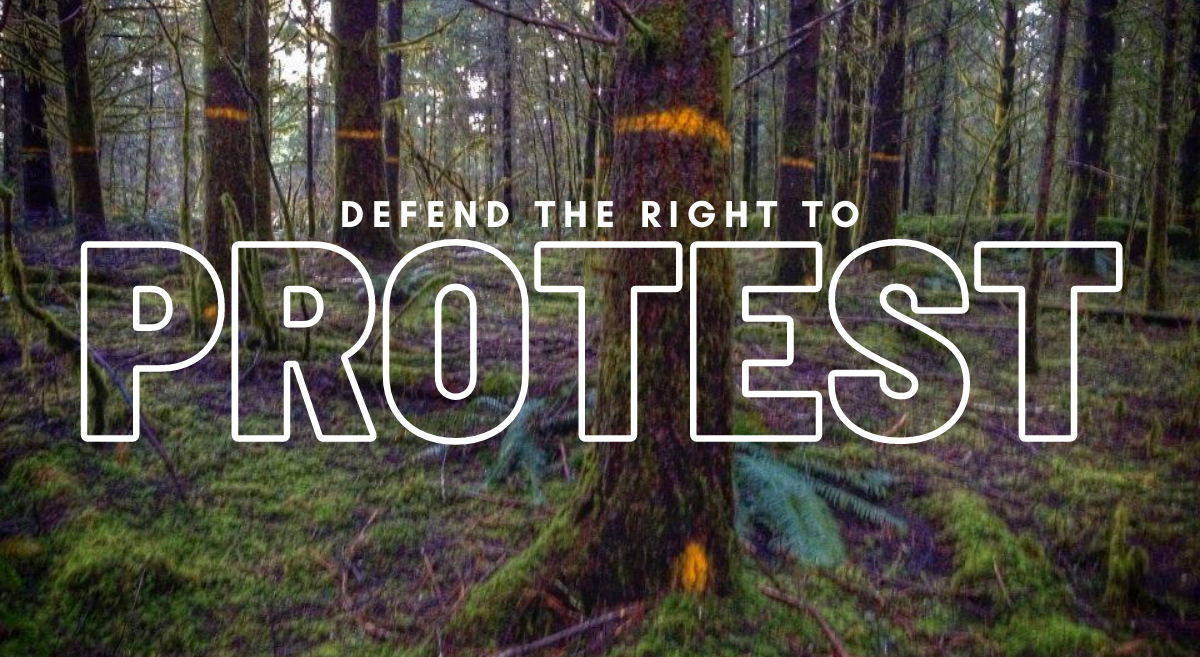
The Trump Administration is once again proposing a giveaway to the logging industry by gutting the rules that allow the public to formally object to timber sales on our public lands.
For decades, Oregon Wild and many other conservation groups have participated in BLM’s timber sale planning public process on behalf of tens of thousands of concerned citizens. Our goals in commenting throughout the process are to stop destructive logging, steer logging toward areas with fewer adverse trade-offs (such as in dense young plantations), and help ensure that these timber sales do as little damage as possible. After planning is complete, BLM gives public notice that specific forest areas will be auctioned, and under existing rules the public has a right to “protest” the timber sale, and bring legal and scientific errors to the attention of BLM before the auction occurs. This protest process not only helps keep BLM accountable to environmental laws and public concerns, but it also gives BLM an “off-ramp” from the timber sale process, so they can avoid legal errors that can result in the agency breaking the law.
The Bureau of Land Management's proposed rule changes would:
- Get rid of the current 15-day protest period upon making a decision to auction public lands for logging.
- Replace the protest period with a 10-day comment period prior to a timber sale decision, but with no accountability from the agency to respond to the public or change the proposed decision – even if flaws are pointed out. (In contrast, the US Forest Service offers a 45-day pre-decision objection period, with guidelines for accountability and resolving conflict.)
- Gets rid of the automatic pause built into the current protest rules, which can keep a forest from being logged while waiting for the agency or court to determine if a logging project violates the law.
The proposed change to timber sale protest rules would only apply in Oregon, where BLM’s 2016 management plan prioritizes increased logging over Oregon’s beloved fish & wildlife and carbon-rich public forests. It would be an ongoing gift of crony capitalism and unaccountable timber sales from the Trump administration.
Commenting is simple
- Select and copy the sample letter below.
- Click this link: https://www.federalregister.gov/documents/2020/06/08/2020-12123/forest-management-decision-protest-process-and-timber-sale-administration#open-comment
- Paste the copied text.
- Edit the text of the letter to personalize it and make it your own.
- Fill in your contact information.
- Click “ I read and understand the statement above”
- Click “SUBMIT”
- You’re done! THANK YOU.
| SAMPLE LETTER |
|---|
|
Dear Interior Secretary David Bernhart and BLM Director William Pendley: I am writing regarding the Proposed Rule for Forest Management Decision Protest Process; 85 Fed. Reg. 34,689, June 8, 2020; RIN 1004-AE61. I urge you to NOT APPROVE the new rules eliminating protests for timber sales in Oregon. It is critical that the BLM protect citizens’ rights to participate in decisions affecting our public lands, including timber sale protests.
For each issue described above, the timber sale protest process helps BLM make better decisions by bringing legal and scientific missteps to the attention of the agency. The protest process also gives BLM an “off-ramp” from the timber sale process, so they can avoid unnecessary conflict and legal errors that lead to expensive and time-consuming litigation. Conservation groups who commonly file timber sale protests represent tens of thousands of concerned citizens, like me, who want to see our public forests managed for clean water, ecological restoration, carbon storage, climate stability, endangered species recovery, fire resilience, recreation, and quality of life. Timber sale protests are a tool used by the public to hold public official accountable to the values we hold dear, and to environmental laws that protect them. Replacing existing protest rules with an unaccountable and very limited pre-decisional comment period will likely result in increased litigation and controversy. Please reject this proposed rule and consider improving the existing rules so that public concerns are meaningfully addressed earlier in the process, and protests are resolved before decisions are finalized and before timber sales are auctioned. |

